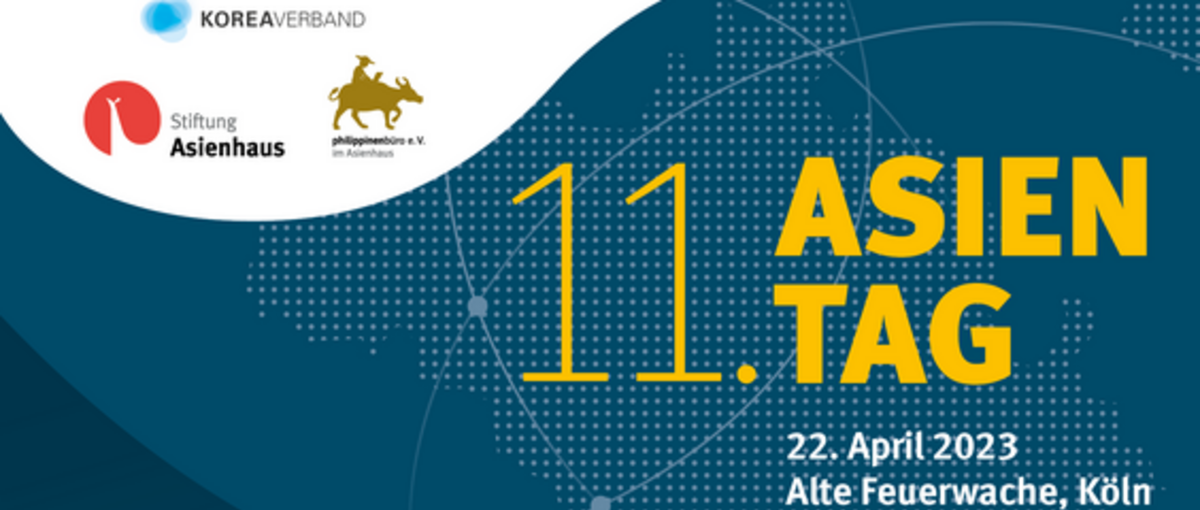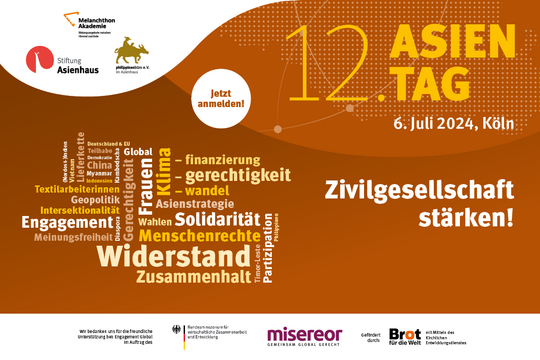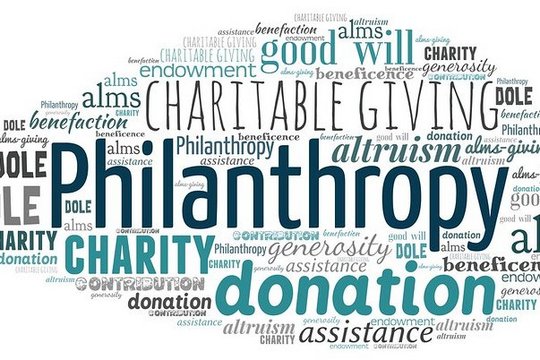The world is groaning and booming, there is excessive investment, consumption, travel, woodcutting, heating, throwing away, sealing, producing... All of these things fuel climate change - but at what cost for nature and people? Man-made climate change can be felt everywhere and is hitting many Asian countries particularly hard. Asia's unique ecosystems are threatened by rising sea levels, droughts, heat waves, floods, storms and landslides that all have disastrous effects on human health, food security and livelihoods. Particularly affected: small farmers, ethnic minorities, indigenous people and marginalized groups.
Sticking to the status quo, a toothless climate policy and the delay of the energy transition will not slow down climate change. How can those responsible be held directly accountable? Can the 1.5-degree target be met? How does humanity want to live in the future, and can it?
Civil society around the world is loudly campaigning for an effective climate policy and against environmental destruction, large-scale projects that increase emissions, and further reliance on fossil fuels and nuclear power. The civil society climate movements in Asia are multifaceted. They connect individuals and groups for whom their government's climate policies do not go far enough. Protests against dam projects, agricultural monocultures or the mining of rare earths and building materials are not new phenomena – what is new is the diversity, digitization, intensity and their networking. In an increasingly authoritarian political environment in various Asian countries, activists in the climate and environmental movement are exposed to various risks.
On the 11th Asientag we will ask how people in Asia affected by climate change deal with it and what responsibility do we have?
We cordially invite you to the Alte Feuerwache and look forward to exciting discussions.
Monika Schlicher (Stiftung Asienhaus)
Mirjam Overhoff (philippinenbüro)
Nataly Jung-Hwa Han (Korea Verband)
When & Where?
-
22 April 2023, 10am – 5:15pm, Alte Feuerwache, Melchiorstraße 3, 50670 Köln
-
Market of Possibilities (Markt der Möglichkeiten): Babaylan, Deutsch-Indonesische Gesellschaft Köln, Online magazine südostasien, German Solidarity with Myanmar Democracy, Ozeanien-Dialog, Fridays for Future Köln, Bettina-Kattermann-Stiftung, Kasama – Klimasolidarität Philippinen
-
The rooms for the individual workshops will be announced on the day itself.
-
If you have any questions, please contact the Stiftung Asienhaus by email at: asientag(at)asienhaus.de or by phone at +49-221-71612113
Registration
The Registration for the 11th Asientag is possible via a form on our website. Please use the QR code or link on this flyer. Registration is possible until 20 April 2023.
Participation fee (including lunch): 12 euros / 7 euros discounted, to be paid on site.
Programm
09:15 a.m. Registration
10:00 a.m. Welcome and Opening
Climate justice: how are we affected?
Anika Schroeder (MISEREOR); Language: German
Climate policy: how united are we?
Sven Harmeling (CARE Germany; Language: German
The life we choose: Climate justice activism in the Philippines
Mitzi Jonelle Tan (YACAP); Language: English
11:15 a.m. Presentations and Discussions Part I
Loss and damage made in Germany? Coal, the 1.5-degree target and transnational protests
Germany is striving to play a pioneering role in phasing out coal, but is putting the interests of industry ahead of climate policy demands. What about Germany's climate responsibility? How is China trying to achieve its climate goals and how are they linked to the German-European strategies? As the 1.5-degree target is becoming increasingly unlikely, civil society protests are networking worldwide. A panel discussion.
Language: German
Amadeo Kaus (Fridays for Future Köln), Leonie Suna-Kiefer (Stiftung Asienhaus), presentation: Hannah Wolf (philippinenbüro)
Climate-friendly transformation: is everyone in the same boat?
The Global North needs a system change: we have to change our everyday lives and economic practices in order to reduce greenhouse gases. But what does "transformation" mean for the Global South? How can transformation be made socially just, including for vulnerable groups? Asia's growing cities create notably great challenges: what is necessary to adapt to climate change and where are the opportunities?
Language: German
Anika Schröder (MISEREOR), Nadine Willner (GermanZero), Max Stille (NETZ), presentation: Mirjam Overhoff (philippinenbüro), Raphael Göpel (Stiftung Asienhaus)
Coastal communities in the climate crisis
The effects of marine climate change are severe in Southeast Asia and the Pacific. Coastal communities that depend on an intact marine ecosystem and have few resources for the necessary adjustments are threatened in their existence. What does this mean for the region, how do communities in Timor-Leste deal with the challenges?
Language: German
Jan Pingel (Ozeanien-Dialog), Octavio de Araujo (climate change and sustainable management consultant), presentation: Monika Schlicher (Stiftung Asienhaus)
Effects of climate change on the realization of human rights
The climate destruction leads to a host of human rights violations worldwide. In Asia, human rights to food, water and health are under massive threat. Those who advocate for them are increasingly endangered. Using examples from Nepal and the Philippines, we discuss with those affected how their rights can be protected and guaranteed.
Language: English
Vennel Chenfoo (Defend Mindanao), Sabine Pabst (FIAN International), presentation: Astrud Beringer (Aktionsbündnis Menschenrechte – Philippinen)
12:45 p.m. Lunch Break: Indonesian Lunch and Time for Networking
02:15 p.m. Lectures and Discussions Part II
Solar, wind power & Co. – How sustainable are they?
"Renewable energies" are not undisputed: high costs, environmental damage, land grabbing and the destruction of biodiversity play a major role in Asia as well as Germany. What (sustainable) options are there and who finances them? The workshop offers an interactive discussion of various topic and country perspectives from India, China, Indonesia, the Philippines and Korea.
Language: English/German
Cynthia Deduro (Dagsaw), Mibi Ete (academic), presentation: Joanna Klabisch (Stiftung Asienhaus) and Olga Basnet (North East India Forum)
Fight for climate justice: Kendeng and the resistance against HeidelbergCement
The HeidelbergCement group wants to build a cement factory on the Kendeng Mountains in Java. The project, which involves mining the karst mountains, endangers the ecosystem and the livelihoods of thousands of people. The population has been fighting back for years, including transnational networking. What climate injustices are involved in this case, and how can justice be achieved?
Language: German
Yvonne Kunz (KITLV), Markus Dufner (Dachverband Kritische Aktionärinnen und Aktionäre), Janty Jie (Watch Indonesia!), Moderation: Raphael Göpel (Stiftung Asienhaus)
Veganism as a civil society initiative for a sustainable way of life in South Korea
South Korea has a long tradition of meat-based cuisine. Since fresh vegetables and alternative products can be expensive, not eating animal products is often a luxury. To counteract high meat consumption, cities and communities are establishing cooperative cooperatives, shops and farms that aim to promote a vegan lifestyle.
Language: English
Miyeon Choi (filmmaker) / Moderation: Anna Grimminger (Member of the Board of Directors of Stiftung Asienhaus)
Movie: Myanmar’s Forgotten Revolution
For two years, the people of Myanmar have been resisting the military's attempted takeover. But their resistance is finding less and less space in public discourses. This documentary, produced in the UK, aims to change that. The film will be shown in English, with room for discussion at the end.
Language: English/German
Nyein Chan May (German Solidarity with Myanmar Democracy), Minn Tinmaung (Producer), Moderation: Majid Lenz (Stiftung Asienhaus)
03:45 p.m. Coffee/tea break with delicacies from Indonesia
04:15 p.m. Closing Ceremony
Together in the climate crisis: responsibility and visions
A solidarity-based global climate movement is the only way out of the climate crisis. But what can we do here in the Global North to support civil society actors in Asia? What do they expect from us? At the end of the Asientag, we will discuss these questions. Asian actors will have their say and we will look for common starting points for civil society engagement.
Language: German
Moderation: Jan Pingel (Ozeanien-Dialog und Member of the Board of Trustees Stiftung Asienhaus), Mary Montemayor (philippinenbüro)
INVITATION to the exhibition with supporting program: The participatory art of the collective Taring Padi
The works of the artist collective, founded in 1998, come from Indonesia's protest culture and denounce political, social and ecological grievances. Her woodcut posters, cardboard figures (wayang kardus) and banners are a symbiosis between a traditional art and a contemporary protestant form.
April 23, 2023, 2:00 p.m. - 7:00 p.m, Gallery Smend, Mainzer Strasse 31, 50678 Köln
An event organized by Stiftung Asienhaus and Deutsch-Indonesische Gesellschaft in Köln









